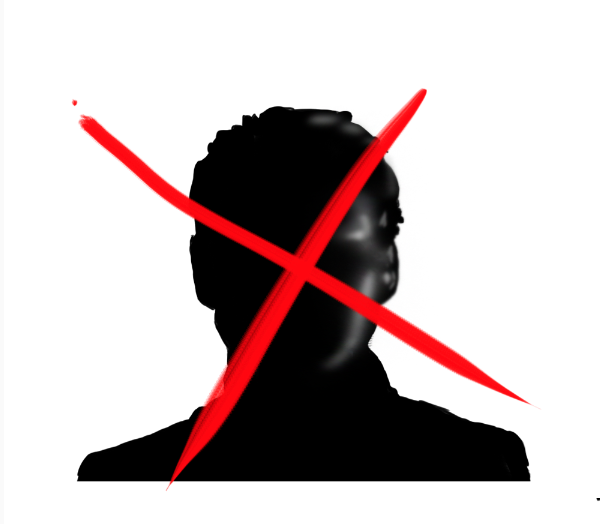The Toxicity of Cancel Culture
March, 2021
[credit name="Faria Majeed" position="CONTRIBUTING WRITER" type="byline"][credit name="Julia Oscar" position="CONTRIBUTING WRITER" type="byline"]
Over the years, some of America’s favorite influencers and celebrities have fallen victim to social media’s cancel culture, which is an internet phenomenon that aims to destroy the careers of public figures, all because of one offensive statement or action from their past. James Charles, Nikita Dragun, J.K. Rowling, and Lana Del Rey are just some who have been negatively affected by this system. This practice, though revealing the true colors of many high-profile public figures, is ineffective in promoting substantive change. Of course, people should be held accountable for insensitive offenses and remarks, both past and present, but attempting to end their careers and livelihoods is not the way to go about it.
When “called to action,” an army of “cancelers” often comes forward with full strength and speed, and offenders find themselves receiving everything from nasty comments
Graphic by [credit name="Caroline Xie"]
to death threats. Whether they have meant to say something offensive or have made an unintentionally offensive joke, the offenders receive no mercy from the online community. The thing is, you don’t have to be an A-list celebrity or influencer to be canceled because the practice is ruthless and demonizing and doesn’t care who or what is its next victim. Regular high school students can be victims of cancel culture as well because if a student has controversial ideals, most of his or her peers take that as an open invitation to what they see as “constructive criticism,” though their criticism lacks the constructive aspect.
For example, if someone at PHS were to share ideals considered offensive by most liberal students at PHS, many who consider themselves “progressive activists” would immediately hop onto social media to post videos and insult the offender in any way possible. These past months, with the rise of Black Lives Matter and Stop Asian Hate protests, various students who voiced objections to these movements were called out and cancelled by their peers. Though it may seem to be an easy way of teaching somebody with different beliefs that their ideas can be offensive, it’s important to realize that if cancel culture doesn’t work on celebrities and public figures, there’s a high chance that it won’t work on high school kids either. Attacking people with full force isn’t going to change anyone’s mind, and you can’t have healthy conversations with people who don’t want to converse. Either way, if you want someone to learn from a situation, “canceling” is simply not the way to go about it.
The method is mainly ineffective because being ostracized by classmates and peers causes one to be isolated from those with differing beliefs. It’s hard to want to learn from people who openly hate and look down on you. When someone says or posts something offensive, it is important to hold that person accountable while still having empathy and recognizing his or her humanity. Though one's actions may be offensive, this doesn’t mean that the offender is inherently bad — a person’s views can change with education. It’s crucial to remember that high school is a time to learn. Teenagers have their entire lives to change their views and grow as people, but when they are pushed into isolation, crucial learning opportunities are lost. If students ostracize one of their peers who has different views, that student will only seek out those who have the same opinions as them, and offensive behavior will be reinforced. Especially in the age of social media, people live in filtered bubbles where online they only see ideas that correspond with theirs. “Canceling” people you know from school, work, or your own family allows this filtered bubble to extend to the real world.
Admittedly, the idea behind cancel culture can be beneficial, but its execution is almost never productive. It has turned into a game, with people finding entertainment in digging up dirt on celebrities and posting it on social media. Those rising to popularity become fearful of their words being taken out of context or their past mistakes resurfacing and being misconstrued, which can cause some to avoid online attention in general. Even when something does come up, the offender’s immediate reaction isn’t to acknowledge where they went wrong and learn from it, it’s to craft an acceptable apology to the public and do some damage control, sometimes effectively, sometimes not. They don’t want to learn; they want to move on and leave it all behind. This reaction will often bring more attention to the person, negative or positive. When the scandal blows over, they are left with a larger platform than they initially had because it’s likely that their supporters never cared about malicious behavior from the start.
Next time you disagree with someone’s beliefs, think carefully before you take action. Attempt to educate them or have a conversation about why they think what they do, but if they are not willing to listen or if you do not have the capacity for a civil and productive conversation, it may be best for you to simply ignore them. You do not owe anyone your time, and you are not obligated to teach someone or try to change their beliefs. Yet even just trying to have a conversation with someone, though it can be hard, is far more constructive than spending your time making an angry post to further cancel culture and create deep divides between people.